Symptoms of ADHD in Children

- posted: Nov. 07, 2022
It’s normal for children to act out. You want your child to test boundaries and show independence, which are both normal milestones in a child’s development. If your child is demonstrating inattentiveness, fidgeting, not listening, and other behaviors on a regular basis, your child could have attention deficit hyperactivity disorder, also known as ADHD.
The Child Development Institute lists the characteristics of ADHD as:
- Inattention
- Hyperactivity
- Impulsivity
These characteristics can contribute to some noticeable signs and symptoms, including:
- Repetitive motions, like clapping hands
- Continuous fidgeting and squirming
- Inability to remain seated for an extended period of time
- Running or climbing at inappropriate times
- Excessive talking and blurting out comments
- Inability to focus on details
- Problems listening and following directions
- Difficulty getting and staying organized
- Frequently losing or forgetting things
ADHD can be difficult to recognize and can easily go untreated, which is why an ADHD screening from your pediatrician is so important. Your pediatrician has effective screening tools to help identify ADHD. If your child has ADHD, there are several therapies your pediatrician may recommend, including:
Behavioral Therapy, which involves both child and parents; this type of therapy can help establish techniques to limit destructive, aggressive, and inappropriate behaviors.
Lifestyle Modification, which involves dietary and exercise alterations; sugar intake is reduced, and vitamin and nutrient intake is increased. Exercise is increased, to help focus on healthy behaviors.
Medication Therapy, which involves using medications to increase focus, improve brain function, and increase self-control. Medications may include Adderall and Ritalin, among others.
If ADHD goes untreated, it can lead to problems when your child becomes an adult. Some of the ways ADHD can affect an adult include:
- Destructive and harmful behaviors
- Poor grades in school
- Poor performance at work
- Inability to form friendships
- Aggressive, belligerent behaviors
- Moodiness, depression, and frustration
- Physical growth issues
- Difficulty sleeping
If you are worried about your child having ADHD, you need to consult with your pediatrician. An ADHD screening is easy, and can help identify ADHD, so it can be treated. To find out more about the signs, symptoms, and treatment of ADHD, call your pediatrician today.

- posted: Nov. 07, 2022
It’s normal for children to act out. You want your child to test boundaries and show independence, which are both normal milestones in a child’s development. If your child is demonstrating inattentiveness, fidgeting, not listening, and other behaviors on a regular basis, your child could have attention deficit hyperactivity disorder, also known as ADHD.
The Child Development Institute lists the characteristics of ADHD as:
- Inattention
- Hyperactivity
- Impulsivity
These characteristics can contribute to some noticeable signs and symptoms, including:
- Repetitive motions, like clapping hands
- Continuous fidgeting and squirming
- Inability to remain seated for an extended period of time
- Running or climbing at inappropriate times
- Excessive talking and blurting out comments
- Inability to focus on details
- Problems listening and following directions
- Difficulty getting and staying organized
- Frequently losing or forgetting things
ADHD can be difficult to recognize and can easily go untreated, which is why an ADHD screening from your pediatrician is so important. Your pediatrician has effective screening tools to help identify ADHD. If your child has ADHD, there are several therapies your pediatrician may recommend, including:
Behavioral Therapy, which involves both child and parents; this type of therapy can help establish techniques to limit destructive, aggressive, and inappropriate behaviors.
Lifestyle Modification, which involves dietary and exercise alterations; sugar intake is reduced, and vitamin and nutrient intake is increased. Exercise is increased, to help focus on healthy behaviors.
Medication Therapy, which involves using medications to increase focus, improve brain function, and increase self-control. Medications may include Adderall and Ritalin, among others.
If ADHD goes untreated, it can lead to problems when your child becomes an adult. Some of the ways ADHD can affect an adult include:
- Destructive and harmful behaviors
- Poor grades in school
- Poor performance at work
- Inability to form friendships
- Aggressive, belligerent behaviors
- Moodiness, depression, and frustration
- Physical growth issues
- Difficulty sleeping
If you are worried about your child having ADHD, you need to consult with your pediatrician. An ADHD screening is easy, and can help identify ADHD, so it can be treated. To find out more about the signs, symptoms, and treatment of ADHD, call your pediatrician today.
Pediatric Group Associates
1625 Avenue Of The Cities,
Moline, IL 61265
Our Sick Clinic is currently open 8 am to 10:45 am Monday through Friday (this is NOT a walk-in clinic).
We recommend using our self-scheduling link , appointment request link, or calling us before arriving at the office to reserve your time slot.
The sick clinic is for acute problems like rashes, insect bites, poison ivy, sunburn and ear pain. We continue to take additional precautions to ensure the safety and health of our patients and staff through the use of our mobile registration and gathering information in advance of your appointment.
Thank you for your continued patience and support as we strive to meet the ongoing needs of our community in the safest possible manner.
Our Moline office is open from 8 am to 1 pm and 2 pm to 5 pm Monday through Friday. We have limited Saturday availability for acute sick symptoms only through our Facebook self-scheduling link which will be posted each Friday evening by 7 pm CST. We do not have regular office hours on Sunday, however there is a provider on-call in case of emergencies.

